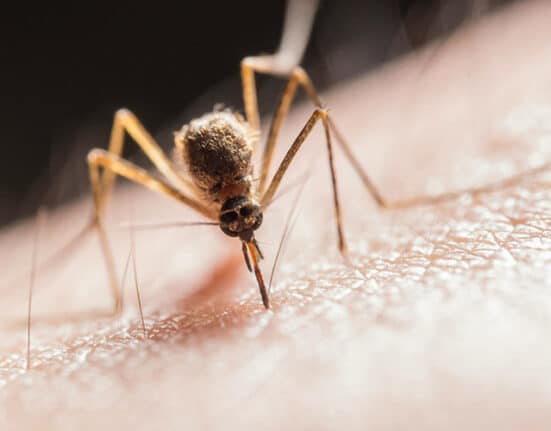RECENTLY, cases related to Dengue have surged due to the increasing numbers of recorded cases in hospital facilities within the National Capital Region (NCR) region.
Last Saturday, the Quezon City local government announced a dengue outbreak in the city; announcing at least 10 related dengue deaths among residents this year.
While Quezon City was one of the cities to first announce the dengue outbreak, it wasn’t just the regions of Quezon City that should be worried about the case as highly urbanized provinces such as Baguio City, Palawan, and Cebu City were also seen to have a reported increase related to dengue-related sickness since December and January.
As dengue-related cases rise, the public are reminded last Sunday not to hesitate to visit a doctor when they suspect to have been experiencing dengue-related symptoms.
The Philippines is known to have an unpredictable weather. Some days (especially during amihan season), a short rainy session can pour down on a perfectly bright sunny day, and with the rain pouring down the lands; it leaves the perfect place for mosquitoes to lay their eggs.
Because of this, the further reproduction of mosquitoes increases–soaring the risk of the dengue virus being transmitted to humans.
How mosquitoes pass the dengue virus
Dengue virus is usually transmitted through the bite of an infected female mosquito primarily the Aedes aegypti mosquito.
After feeding to a person, the virus replicates in the mosquito midgut before spreading to secondary tissues, including the salivary glands.
After feeding on an infected person, the virus replicates in the mosquito midgut before disseminating to secondary tissues, including the salivary glands.
For the virus to be ingested, it will take time for the virus to be transmitted to a new host. It is termed the extrinsic incubation period (EIP) which takes about 8 to 12 days when the ambient temperature is between 25-28 degrees.
Another way to transmit the virus is when a dengue-infected person infects the mosquitoes. This could be when someone is already a carrier of the dengue virus even if they’re not exhibiting any symptoms.
It takes up to two days before a person starts exhibiting symptoms of the sickness. Two days after the fever subsides, human to mosquito transmission can take place.
In rare cases, the dengue virus can also be transmitted through blood transmission, organ donation, and transfusions. Transovarial transmission of the virus has also been recorded.
What are the dengue symptoms?
Usually, people may or may not experience symptoms of a dengue infection, if they ever do; it is often mistaken as other illnesses such as the flu. If you’re bitten by an infected mosquito, symptoms usually begins to show on four to 10 days.
Dengue fever usually causes a high fever that reaches up to 40 degrees. This fever is also accompanied with the following symptoms.
- Headache
- Muscle, bone or joint pain
- Nausea
- Vomiting
- Pain behind the eyes
- Swollen glands
- Rash
In severe cases, the following symptoms can be experienced:
- Severe stomach pain
- Persistent vomiting
- Bleeding from your gums or nose
- Blood in your urine, stools or vomit
- Bleeding under the skin, which might look like bruising
- Difficult or rapid breathing
- Fatigue
- Irritability or restlessness
Quick tips to prevent dengue
Mosquitoes are something that most of us can’t really avoid, however, there are some ways on where we can protect ourselves from the virus.
The Department of Health released the 5S, a strategy on how you can protect yourself from dengue.
- Search and Destroy – Search and destroy the areas where mosquitoes can breed and lay their eggs.
- Self-protection measures – Wear long sleeves and pants and protect yourself from the bite and feel free to take extra precautions with mosquito repellent.
- Seek early consultation – If you happen to start feeling some dengue symptoms, proceed on your nearest hospital/clinic to get yourself checked.
- Say yes to fogging – Support fogging on the hotspot areas to prevent further reproduction of the mosquitoes,
- Sustain hydration – Always fuel your body with enough hydration.
Why should the public beware of dengue?
Living in a tropical country like the Philippines, dengue is known to be one of the threats within the health of Filipinos due to its potential to kill.
With the rising cases of dengue, the Department of Health (DOH) expressed their concern about the upsurge within nine areas in the country.
From January 1 to February 1, a total of 28,234 dengue cases were recorded in the country; translating into a 40% increase from the same period last year.
Symptoms of dengue can be treated with pain medicine, meanwhile, severe cases of this can be fatal especially when it is not treated in the hospital.
The Department of Health had also advice the public to take dengue symptoms seriously as there isn’t a cure for the said virus.
How useful was this post?
Click on a star to rate it!
Average rating 5 / 5. Vote count: 1
No votes so far! Be the first to rate this post.
We are sorry that this post was not useful for you!
Let us improve this post!
Tell us how we can improve this post?









